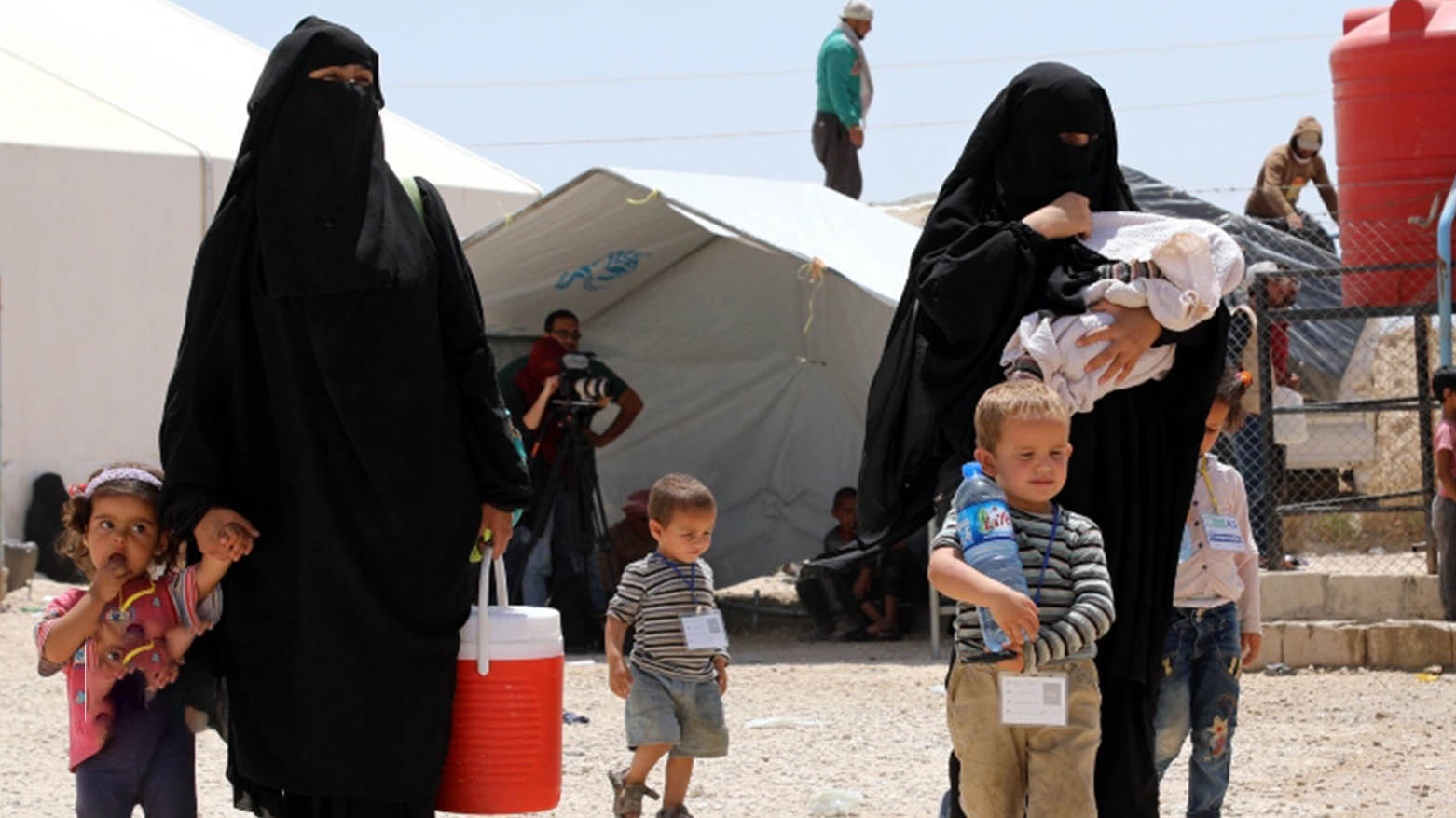232 Iraqi Families Leave Al-Hol Camp in Ongoing Repatriation Efforts
232 Iraqi families (850 individuals) leave al-Hol camp in latest repatriation to Iraq. It marks the 29th convoy since returns began, part of ongoing efforts to reduce the camp’s population amid security and humanitarian concerns.

ERBIL (Kurdistan24) – A total of 232 Iraqi families, comprising 850 individuals, left the notorious al-Hol camp in southern Hasakah on Thursday as part of the voluntary repatriation program, coordinated between the Democratic Autonomous Administration of North and East Syria (DAANES) and the Iraqi government.
According to camp authorities, this marks the 29th repatriation convoy since the start of organized returns and the 12th such transfer in 2025 alone. The move comes as part of a wider effort to gradually reduce pressure on the camp, which has long been described as one of the most volatile in Syria due to the presence of former members of the so-called Islamic State and their families.
Last month, 233 Iraqi families—around 812 individuals—were repatriated from al-Hol to al-Jadaa camp inside Iraq under the same framework. That transfer was conducted in direct coordination with DAANES, the Iraqi government, and with oversight from the U.S.-led international coalition.
These consecutive waves of returns highlight ongoing efforts to resolve one of the region’s most sensitive humanitarian and security files: the fate of displaced families trapped in al-Hol.
According to camp administration sources, all departures undergo strict review to ensure that families are not linked to extremist activities. Only after the vetting process are families cleared to return to Iraq or their local Syrian areas.
The latest departure of 232 Iraqi families follows earlier domestic evacuations of Syrian displaced families. Recently, 127 individuals from 36 families originating from Aleppo, Idlib, and Raqqa provinces left the camp, in coordination with tribal leaders and DAANES officials.
Such operations aim to gradually empty the camp of Syrian families willing to return home, despite the difficult humanitarian and security conditions that continue to characterize al-Hol.
At the end of July, another 233 Iraqi families—over 800 people—departed al-Hol, marking the 11th repatriation since January.
In May 2025, broader measures were enacted across DAANES-run camps, with 358 families (1,307 individuals) leaving various camps in North and East Syria. Among them were 35 families from Homs and 224 families connected to ISIS who had been displaced during the war.
That same month, DAANES authorities handed over five German nationals (a woman and four children) to an official German delegation, while 40 ISIS fighters were extradited to Iraq for prosecution under Baghdad’s judicial system. These moves were carried out under tight international coalition security supervision.
The recent waves of departures were also accompanied by official visits, including a landmark inspection by the new Syrian government delegation, alongside representatives of the U.S.-led coalition, who toured al-Hol in May to review the camp’s humanitarian and security situation.
Such visits underscore the international dimension of the crisis and the critical role of cooperation between local, regional, and global actors in managing both the humanitarian burden and the security risks posed by al-Hol.
The camp, located in the eastern countryside of Hasakah, houses tens of thousands of people from multiple nationalities. It has been repeatedly described as one of the most dangerous camps in Syria, where the legacy of ISIS lingers and where humanitarian conditions remain dire.
Authorities stress that the ultimate objective is to relieve pressure on the camp, ensure the safe repatriation of families, and restructure the file of detainees and displaced persons.
